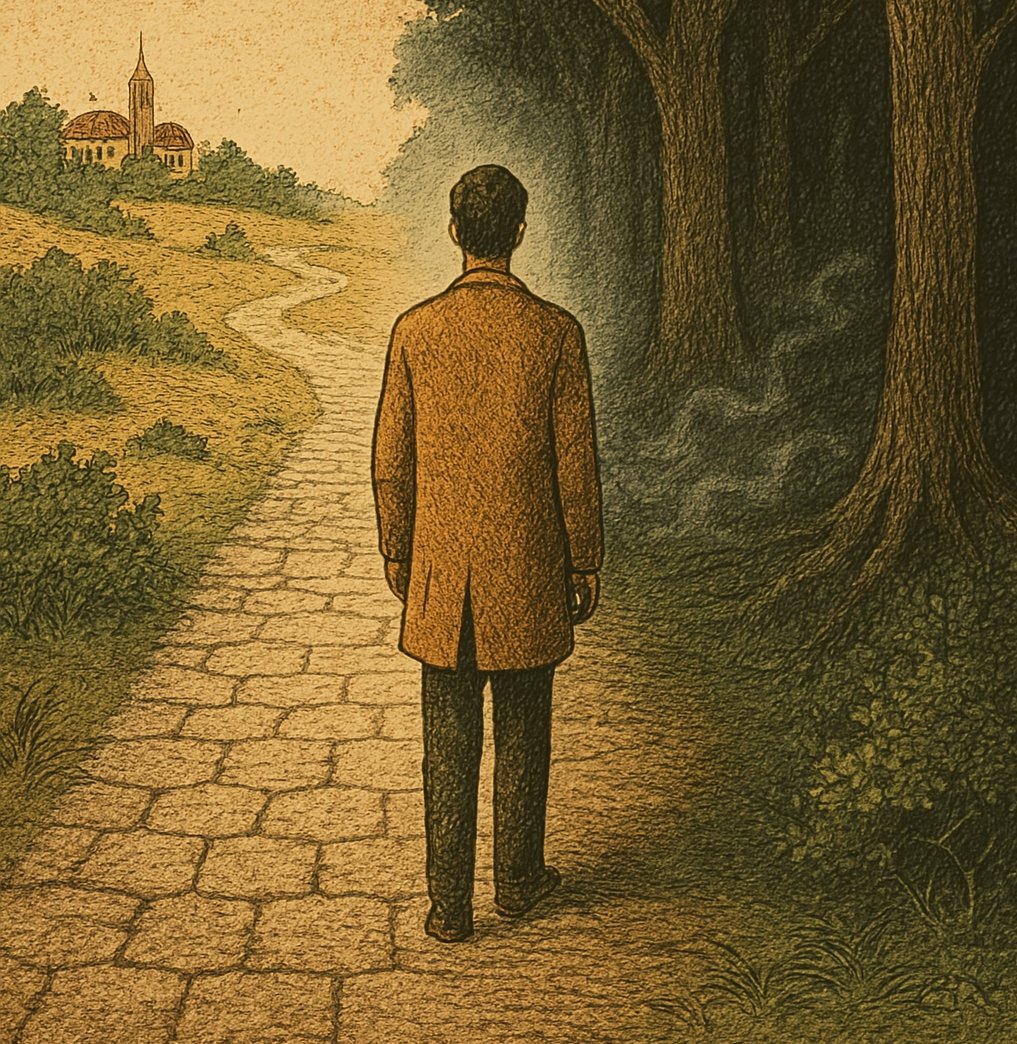The Turn Within: Why Midlife Feels Like a Crisis (But Is Really a Call to Self)
Read time: 4 minutes
Welcome to My Musings
Where I share insights that have impacted me, thoughts on personal growth, and actionable strategies to help you navigate career and life transitions.
Today: Midlife isn’t a crisis - it’s a calling to turn inward and finally meet a different self.
Over the past few months, I’ve delved into the work of James Hollis - and, in particular, his impactful book, “The Middle Passage: From Misery to Meaning in Midlife”
TL;DR: At some point in our lives - often quietly, sometimes in chaos - the ground shifts beneath us. We ask: Is this it?
That moment, often misunderstood as a “midlife crisis,” is what Jungian analyst James Hollis calls the Middle Passage. And at the heart of it lies a powerful, disorienting moment he names the turn within.
In Chapter 3 of The Middle Passage, Hollis writes of the psychological necessity - and spiritual imperative - to stop looking outward for answers and start looking inward. To stop blaming others or circumstances for our unhappiness and instead begin the often painful digging into of the self.
This is the invitation of midlife - to finally meet what’s been there all along.
What Does It Mean to “Turn Within”?
In the first half of life, we are busy building. Careers. Relationships. Reputations. Identities. And rightly so - this stage is essential. We learn how to function in the world, develop a persona that helps us succeed, and adopt belief systems that guide us.
But at some point, these very structures begin to feel hollow. And here’s the crucial distinction: they aren’t wrong. They’re just no longer enough.
This is the paradox Hollis highlights. We outgrow the very strategies that once worked for us. And, this can be slightly shocking.
In literature, this moment is echoed across countless journeys. Think of Dante in The Divine Comedy, who famously opens his midlife tale with:
“Midway upon the journey of our life
I found myself within a forest dark,
For the straightforward path had been lost.”
That “dark forest” is not merely metaphor. It’s a spiritual and psychological reckoning. A recognition that the straight lines and clear answers of our early lives no longer serve us. That success no longer satisfies. That clarity becomes murky. That we are called to something deeper - and more honest.
Why This Feels Like Falling Apart (And Why That’s OK)
To turn inward is to lose your footing - at least temporarily.
We may feel disconnected from our work, our relationships, even our own values. The question isn’t What should I do next? but rather, Who am I now?
Hollis describes this inner turn not as indulgence, but as a return to authenticity. To the neglected parts of ourselves that have been exiled in the name of getting things done, being liked, performing well, or staying safe.
In Carl Jung’s language, this is the confrontation between the persona (the mask we wear in public) and the shadow (the disowned parts of ourselves). For many, this is the first time in decades — or ever — that we allow ourselves to sit with questions like:
What do I actually want?
Who am I when I’m not being useful?
What have I sacrificed in order to belong?
And perhaps most disturbingly:: What part of me have I never truly met?
Beyond the Breakdown: The Birth of the Second Adulthood
The Middle Passage is not a breakdown but a doorway.
In T.S. Eliot’s Four Quartets, he writes:
“We shall not cease from exploration
And the end of all our exploring
Will be to arrive where we started
And know the place for the first time.”
This is the soul of the Middle Passage. A return to the self - not the self we’ve been taught to be, but the one we’ve always been and have, perhaps, forgotten..
When we turn within, we begin to reclaim what’s been waiting: creativity, stillness, clarity, grief, joy. We stop performing and start listening. We discover that meaning is not something given to us - it is something we build, slowly, from the inside out.
This turning doesn’t promise answers. It promises depth. And with it, a second adulthood that’s less about legacy and more about liberation.
This Is the Work
If you’re in the thick of it - if the old ways aren’t working and the new ways aren’t clear - just remember - you’re not lost.
This is the work I do with clients every day. I coach people through this transition - from outer achievement to inner alignment. From borrowed identities to true authorship.
If this resonates, I invite you to walk with me.
You can message me, reply to this email, or learn more about how we can work together.
Until next week.

